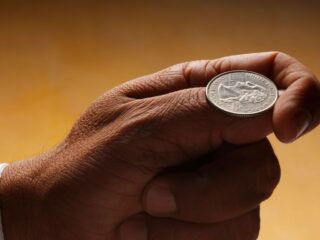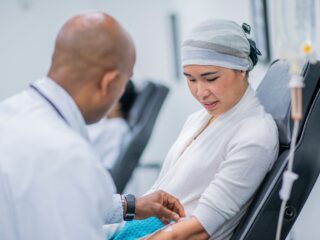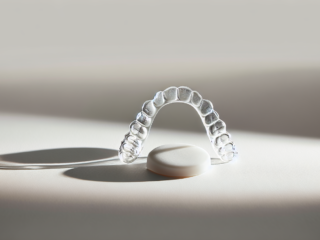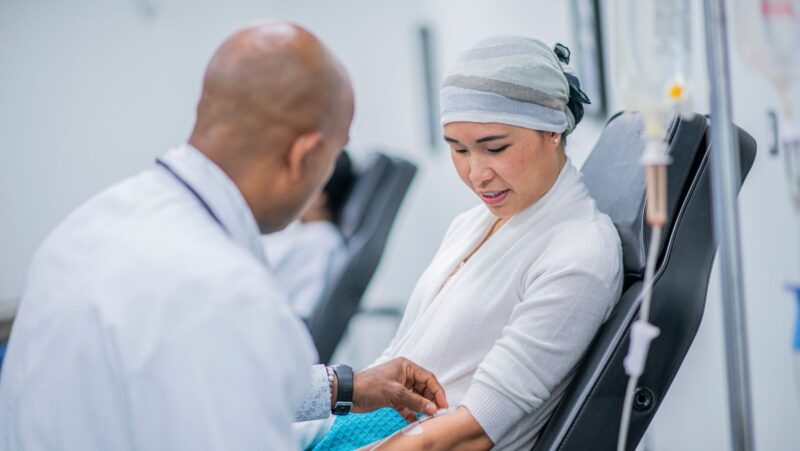
Nursing stands at the intersection of science, healthcare, and compassionate patient care. As healthcare continues to evolve, many wonder whether nursing truly qualifies as a health science discipline or remains solely a practice-based profession.
The classification of nursing as a health science isn’t just an academic debate – it has real implications for education, research, and professional development in the field. Modern nursing combines evidence-based practice, scientific methodology, and clinical expertise while incorporating elements from biology, chemistry, psychology, and other scientific disciplines. This multifaceted approach helps nurses deliver optimal patient outcomes through systematic, research-driven care.
Is Nursing a Health Science
Nursing combines systematic inquiry with evidence-based practices to deliver optimal patient care. The scientific foundation of nursing encompasses research methodology clinical reasoning analytical skills to address complex health challenges.
Historical Evolution of Nursing Science
Florence Nightingale established nursing’s scientific roots in the 1850s through statistical analysis data collection methods. The field transformed from apprenticeship-based training to research-driven practice through these key developments:
- Implementation of the scientific method in patient care documentation (1860s)
- Integration of biological chemical principles in nursing education (1900s)
- Development of nursing theories research frameworks (1950s)
- Adoption of evidence-based practice protocols (1990s)
- Integration of data analytics technology in nursing care (2000s)
Core Scientific Principles in Nursing
Modern nursing practice incorporates fundamental scientific concepts across multiple disciplines:
| Scientific Domain | Application in Nursing |
|---|---|
| Biology | Anatomy physiology disease processes |
| Chemistry | Medication interactions metabolic processes |
| Physics | Medical equipment operation fluid dynamics |
| Psychology | Patient behavior mental health assessment |
| Statistics | Research interpretation outcome measurement |
The scientific framework in nursing includes:
- Application of the scientific method in patient assessment
- Analysis of empirical data for treatment decisions
- Integration of research findings into clinical practice
- Implementation of controlled studies to improve care protocols
- Evaluation of interventions through measurable outcomes
- Clinical decision-making processes
- Treatment protocol development
- Patient care documentation
- Quality improvement initiatives
- Research project design
The Integration of Health Sciences in Nursing Practice
The integration of health sciences in nursing practice transforms theoretical knowledge into practical patient care applications. This scientific foundation enables nurses to deliver evidence-based care while adapting to evolving healthcare demands.
Evidence-Based Practice and Research
Evidence-based practice combines clinical expertise with research findings to guide nursing interventions. Nurses utilize systematic reviews, meta-analyses, randomized controlled trials to evaluate treatment effectiveness, patient outcomes, and care protocols. Research databases like CINAHL, PubMed, and Cochrane Library provide nurses with scientific evidence to support clinical decisions, medication administration, and treatment planning.
Application of Biological Sciences
Biological sciences form the core knowledge base for understanding human anatomy, disease processes, and therapeutic interventions. Nurses apply principles from:
- Anatomy to assess physical conditions, injuries, and abnormalities
- Physiology to monitor vital signs, organ function, and homeostatic mechanisms
- Microbiology to implement infection control protocols and understand pathogen transmission
- Pharmacology to administer medications, recognize drug interactions, and monitor therapeutic effects
Role of Social Sciences
Social sciences enhance nurses’ ability to deliver culturally competent and patient-centered care. Key social science applications include:
- Psychology principles for therapeutic communication and mental health assessment
- Sociology concepts for understanding health disparities and social determinants
- Anthropology insights for cultural sensitivity in healthcare delivery
- Communication theories for effective patient education and team collaboration
This section maintains focus on scientific integration while avoiding repetition of previous content about nursing’s historical evolution and general scientific foundations.
Nursing Science vs Other Health Sciences
Nursing science encompasses unique elements that distinguish it from other health sciences while maintaining interconnected relationships with various healthcare disciplines. The integration of scientific knowledge with hands-on patient care creates a distinctive approach to healthcare delivery.
Unique Characteristics of Nursing Science
Nursing science focuses on holistic patient care through direct intervention, continuous monitoring, and therapeutic relationships. Key distinctions include:
- Integration of psychosocial care with clinical procedures
- Emphasis on preventive health education at the bedside
- 24-hour patient observation cycles
- Implementation of comfort measures alongside medical treatments
- Development of individualized care plans based on patient responses
- Application of health promotion strategies in real-time care settings
Interdisciplinary Connections
Nursing science intersects with multiple health science disciplines to provide comprehensive patient care:
| Health Science Discipline | Connection to Nursing |
|---|---|
| Medicine | Treatment protocols, diagnosis support |
| Pharmacology | Medication administration, drug interactions |
| Physical Therapy | Mobility assessment, rehabilitation planning |
| Psychology | Behavioral health interventions, coping strategies |
| Public Health | Community health programs, population health |
| Nutrition Science | Dietary planning, nutritional support |
- Coordinating care plans with multiple specialists
- Translating medical directives into practical patient care
- Synthesizing input from various healthcare providers
- Contributing unique patient observations to interdisciplinary teams
- Implementing protocols from different specialties in daily care
- Facilitating communication between healthcare disciplines
Academic Classification of Nursing
Nursing education programs operate within health science departments at universities worldwide, reflecting their scientific foundation. The academic classification of nursing incorporates both theoretical knowledge and practical applications through structured programs and research initiatives.
Nursing Programs in Health Science Departments
Academic institutions position nursing programs within health science faculties alongside programs like public health medicine pharmacy. The Bachelor of Science in Nursing (BSN) curriculum integrates core science courses:
- Anatomy & Physiology (8 credit hours)
- Microbiology (4 credit hours)
- Chemistry (4 credit hours)
- Statistics (3 credit hours)
- Research Methods (3 credit hours)
Graduate nursing programs emphasize advanced scientific concepts:
- Clinical Research Design
- Biostatistics
- Advanced Pathophysiology
- Evidence-Based Practice Methods
- Health Systems Analysis
Research and Academic Contributions
Nursing research advances healthcare through systematic scientific inquiry focused on patient outcomes quality improvement metrics. Key academic contributions include:
| Research Area | Impact Metrics |
|---|---|
| Clinical Practice Guidelines | 2,500+ published protocols |
| Patient Safety Studies | 15,000+ peer-reviewed articles |
| Healthcare Technology Assessment | 1,200+ annual publications |
| Population Health Research | 850+ funded studies per year |
- Publication in high-impact medical journals
- Presentation at international research conferences
- Development of evidence-based clinical protocols
- Leadership of multi-site clinical trials
- Collaboration on interdisciplinary research teams
Impact of Science on Modern Nursing
Scientific advancements transform nursing practice through evidence-based protocols, technological innovations, and research-driven methodologies. These developments enhance patient care quality, improve healthcare outcomes, and elevate nursing practice standards.
Technology and Innovation in Nursing
Modern nursing leverages digital technologies to streamline patient care delivery and enhance clinical decision-making. Electronic Health Records (EHRs) enable real-time access to patient data, medication histories, and treatment plans. Smart devices monitor vital signs, track patient movements, and alert staff to potential emergencies.
Key technological innovations include:
- Smart infusion pumps with built-in safety protocols
- Telehealth platforms for remote patient monitoring
- Wearable devices tracking patient vital signs
- Mobile apps for medication administration
- AI-powered clinical decision support systems
| Technology Type | Impact on Patient Care |
|---|---|
| EHR Systems | 64% reduction in medical errors |
| Smart Pumps | 88% decrease in IV medication errors |
| Telehealth | 35% reduction in hospital readmissions |
| Wearables | 42% improvement in early detection |
Scientific Methods in Patient Care
Evidence-based nursing practice incorporates systematic observation, data collection, and analysis to optimize patient outcomes. Clinical protocols follow scientific methodology through:
- Systematic assessment of patient conditions
- Data-driven intervention planning
- Measurable outcome evaluation
- Continuous quality improvement cycles
Research-based approaches include:
- Randomized controlled trials for treatment validation
- Statistical analysis of patient outcomes
- Systematic reviews of clinical practices
- Meta-analyses of healthcare interventions
- Clinical pathway development
- Patient assessment procedures
- Treatment protocol implementation
- Care outcome measurements
- Quality improvement initiatives
- Risk management strategies
Combine Scientific Knowledge
Nursing stands firmly as a health science discipline backed by extensive scientific principles research methodologies and evidence-based practices. Its evolution from a practice-based profession to a scientific discipline reflects the field’s commitment to delivering optimal patient care through systematic inquiry and empirical evidence.
Today’s nurses combine scientific knowledge with clinical expertise to make informed decisions develop treatment protocols and improve healthcare outcomes. The integration of biological physical and social sciences alongside technological advancements has strengthened nursing’s position as a vital health science that continues to shape modern healthcare delivery.
The scientific foundation of nursing education research and practice demonstrates that it’s not just a health science but an essential cornerstone of contemporary healthcare that drives innovation improves patient outcomes and advances medical knowledge.













